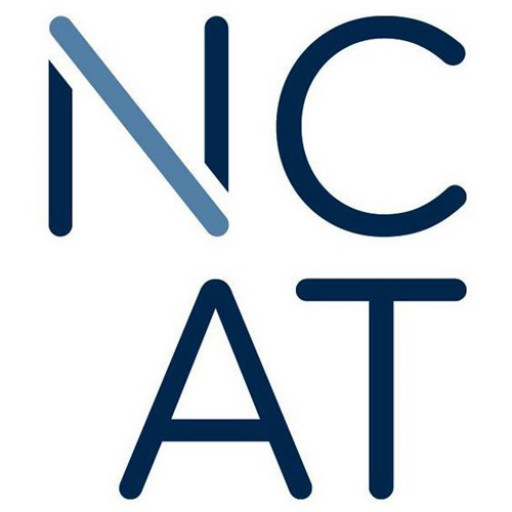The Certificate IV in Photography and Photo Imaging offered by TAFE NSW provides students with comprehensive skills and knowledge to excel in the dynamic field of professional photography. This program is designed for individuals passionate about capturing moments, creating compelling visual stories, and developing a diverse portfolio suitable for various photography genres, including portrait, commercial, landscape, and event photography. Throughout the course, students learn fundamental photographic techniques, digital image editing, studio lighting, and post-production processes essential for producing high-quality images. The curriculum emphasizes practical and theoretical components, ensuring graduates are proficient not only in camera operation and composition but also in understanding client needs, marketing their services, and managing photographic projects from inception to delivery. Leveraging state-of-the-art equipment and industry-standard software, students gain hands-on experience in real-world scenarios, preparing them to meet current industry demands. TAFE NSW's strong connections to industry professionals and workplace practices facilitate internships and project opportunities, fostering networking and employment prospects post-graduation. The program also covers aspects of business management within the creative arts sector, enabling students to establish their own photographic enterprises or effectively work as part of a professional team. This qualification is ideal for aspiring photographers seeking practical skills and industry insight, as well as for those who wish to enhance their artistic and technical capabilities in a supportive learning environment. Upon completion, graduates will be equipped with the confidence, technical mastery, and creative vision necessary to pursue diverse career pathways in the vibrant world of photography and visual imaging.
The Photography and Photo Imaging program at TAFE NSW is designed to equip students with comprehensive skills and knowledge necessary for a successful career in the dynamic field of photography. This course offers a blend of practical training and theoretical understanding, enabling students to develop their artistic eye, technical proficiency, and understanding of the latest industry standards and technologies. Throughout the program, students will explore various photographic genres, including portrait, landscape, commercial, and studio photography, gaining hands-on experience with professional equipment and software. The curriculum emphasizes creative development, compositional techniques, lighting, and post-production editing, ensuring graduates are well-prepared to produce high-quality images in diverse settings. Additionally, the program covers essential aspects such as digital workflow management, client communication, and the business side of photography, empowering students to establish and maintain their own professional practice or succeed within established organizations. Practical projects, industry placements, and portfolio development are integral components of the course, providing students with real-world experience and a professional portfolio that showcases their talents. The program also keeps pace with current industry trends, including emerging digital and multimedia techniques, ensuring students are proficient in the latest tools and methods. By completing this program, graduates will be equipped with a versatile skill set suitable for various careers in photography, including freelance work, commercial photography, photojournalism, fashion, advertising, and art. With highly experienced instructors, access to state-of-the-art facilities, and strong industry links, the Photography and Photo Imaging course at TAFE NSW offers an excellent pathway for aspiring photographers to turn their passion into a rewarding profession.
Program requirements for the Photography and Photo Imaging course at TAFE NSW include a combination of prerequisite skills, prior educational qualifications, and specific student competencies. Prospective students are generally expected to have a strong interest in photography, visual arts, or related fields. While there are no strict entry requirements, a relevant educational background such as Year 10 completion or equivalent is recommended. In some cases, applicants may be required to submit a portfolio demonstrating their interest and aptitude in photography or visual imaging. Additionally, applicants should possess basic computer literacy skills, as course modules often involve digital photo editing and computer-based design work. As the program involves practical activities, students should have access to a digital camera and computer with suitable software, or be willing to acquire these tools as part of their learning process. The course may include prerequisites related to safety awareness in handling photographic equipment and some foundational knowledge of art and design principles. Certain units within the program might require prior completion of related courses or skills, such as basic digital literacy or an understanding of composition and lighting. International students should ensure they meet the English language proficiency requirements, typically an IELTS score of 5.5 or equivalent. Applicants with prior industry experience in photography or related fields may be considered for credit transfer or exemptions, subject to assessment. All students are required to commit to full-time attendance and engagement, including participating in practical shooting sessions, studio work, and critique sessions. The program aims to develop both technical skills and creative abilities, requiring students to demonstrate a certain level of motivation, discipline, and a keen eye for visual storytelling. In addition, successful applicants must adhere to TAFE NSW’s code of conduct and safety policies throughout their studies. Overall, the program is designed to be accessible to students with various backgrounds, but a demonstrated interest in photography, basic technical skills, and readiness to learn and develop are essential prerequisites.
The Photography and Photo Imaging program at TAFE NSW offers a range of study financing options for eligible students to support their educational pursuits. Students can explore various funding sources such as government assistance schemes, scholarships, and employer-sponsored training programs. Commonwealth Supported Places may be available for eligible domestic students, which can significantly reduce tuition costs. Additionally, the Australian Government supports students through the VET Student Loans program, allowing eligible students to defer part of their tuition fees and repay them through the tax system after gaining employment. TAFE NSW also provides financial counselling and advice to help students assess their funding options and develop suitable payment plans. For domestic students, there are also access to State-based scholarships and grants aimed at supporting students from diverse backgrounds, including those facing financial hardship, Indigenous Australians, and mature learners. International students enrolling in the Photography and Photo Imaging program are responsible for their tuition fees, which vary depending on the course level and duration. They may also explore scholarship opportunities offered specifically for international students to assist with costs. In addition to government aid, students can seek support from external funding bodies or private sponsors. The cost of living, including accommodation, materials, and equipment, should also be considered when planning finances for study. TAFE NSW encourages prospective students to contact their financial support services early in the application process to ensure they are aware of all available options. Payment plans and flexible financing options are often available to accommodate individual circumstances, making education more accessible. Overall, the program aims to provide affordable and manageable pathways for students to develop their skills in photography and photo imaging, backed by a variety of financial assistance schemes and resources intended to minimize financial barriers to education.
The Photography and Photo Imaging program at TAFE NSW offers students comprehensive training in the core principles and practical skills necessary for a successful career in photography. This program encompasses a wide range of photographic techniques, including digital photography, studio lighting, image editing, and printing processes. Students will learn how to operate professional camera equipment, understand composition and lighting principles, and develop a keen eye for visual storytelling. The curriculum also covers post-production skills using industry-standard software to enhance and manipulate images effectively.
Throughout the course, students have opportunities for hands-on experience through practical projects, assignments, and real-world photography shoots, enabling them to build a strong portfolio of work. The program emphasizes both technical proficiency and creative exploration, encouraging students to develop their unique artistic voice within various photography genres such as portrait, commercial, documentary, and fine art photography.
In addition to technical training, the program provides foundational knowledge of the photographic industry, including understanding copyright laws, marketing, and business management aspects relevant to professional photographers. Students also gain skills in client communication, project planning, and digital workflows vital for freelance and studio-based work.
TAFE NSW’s facilities are equipped with modern photographic studios, darkrooms, and digital labs, providing a state-of-the-art environment for learning and experimentation. The program is designed for individuals passionate about visual arts and interested in turning their creative ideas into professional photographs. Upon graduation, students can pursue careers as photographers, photo editors, digital imaging specialists, or enter related fields within media, advertising, or art production.
Designed to cater to both beginners and those seeking to enhance their existing skills, the Photography and Photo Imaging program offers pathways for further education or employment in the dynamic field of visual media. It aims to foster technical expertise, artistic development, and industry readiness, equipping graduates with the confidence and skills needed to thrive as professional photographers in a competitive market.










